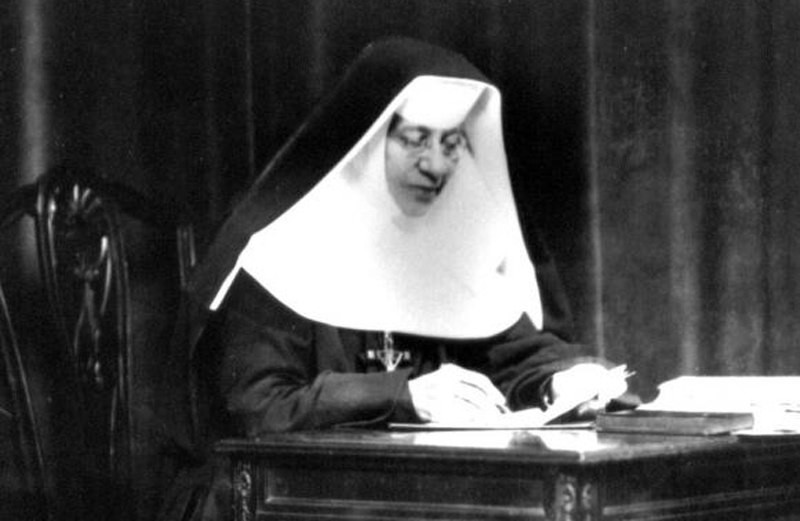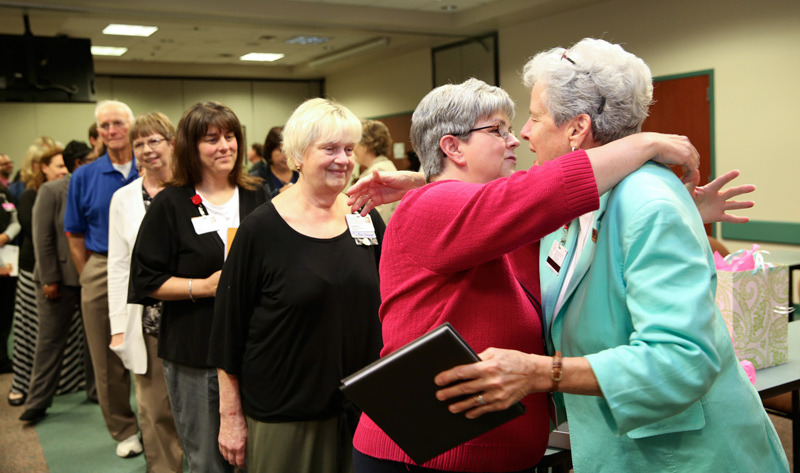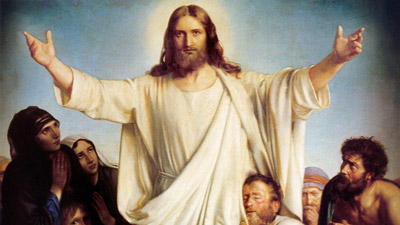
“Was it about educating them for a better life, or was it more about saving their lives?” asked a woman at the lunch table set up in the lobby of the church on the corner of Hampton and Oak.
“I think it was about both,” replied another.
This conversation took place during the springtime Black Catholic Day of Reflection, a diocesan event, held at St. Martin de Porres Church in Columbia. It was prompted by comments shortly before the break about the existence and the fate of St. Emma Military Academy for Boys and St. Francis de Sales School for Girls in Virginia. Parishioners from St. Gerard Church in Aiken had learned that an impressive number of young men and young women from their parish and elsewhere in the state had studied there between the 1890s and 1972, when the schools closed.
The students were African Americans boarding at schools founded by St. Katharine Drexel, whose Sisters of the Blessed Sacrament have devoted themselves to African American and Native American missions. At least 20,000 students attended over the years and had, as one put it, “a life-changing experience.”
St. Emma’s had a Booker T. Washington philosophy, offering academics, religion, arts, and trade skills. The graduates of St. Francis de Sales could boast a vast knowledge of classics as well as practical arts.
In our era of “Black Lives Matter,” it seems important to reflect on how Mother Katharine invested her share of the multi-million dollar Drexel family fortune to assure that parents, grandparents, and great-grandparents of our parishioners knew that their lives mattered. It was, after all, the era of segregation, Jim Crow, and bloody murders like that of Chicago teen Emmett Till when Mother Katharine created a secure environment, a rigorous course of studies, a well-appointed chapel, and an array of extra-curricular activities for youth from South Carolina and elsewhere.
The schools, named for the patron saints of her father and the stepmother who raised her, embodied Mother Katharine’s devotion to the Eucharist, scholarship, service, and positive action on behalf of victims of injustice. When we look to our own pro-life commitments, we can cite our saint as an embodiment of how comprehensive those commitments must be. We promote and plead for survival from womb to tomb while also advocating for quality of life, promotion of the family, and remedy for the ills of civil society.
Sorry to say, the historic schools have been shuttered, and a few remaining sisters live on the property, which is up for sale. But the legacy remains. We have a great American saint who reminds us that we have brothers and sisters who need our attention and nurturing. We may not have millions, but we can invest ourselves in the two goals under question at lunch: 1) giving our resources to help create better lives for those among us and those coming after us, and 2) devoting our works and our prayers to combatting the sin of racism.
Sister Pamela Smith, SSCM, is the Secretary for Education and Faith Formation at the Diocese of Charleston. Email her at psmith@catholic-doc.org.




